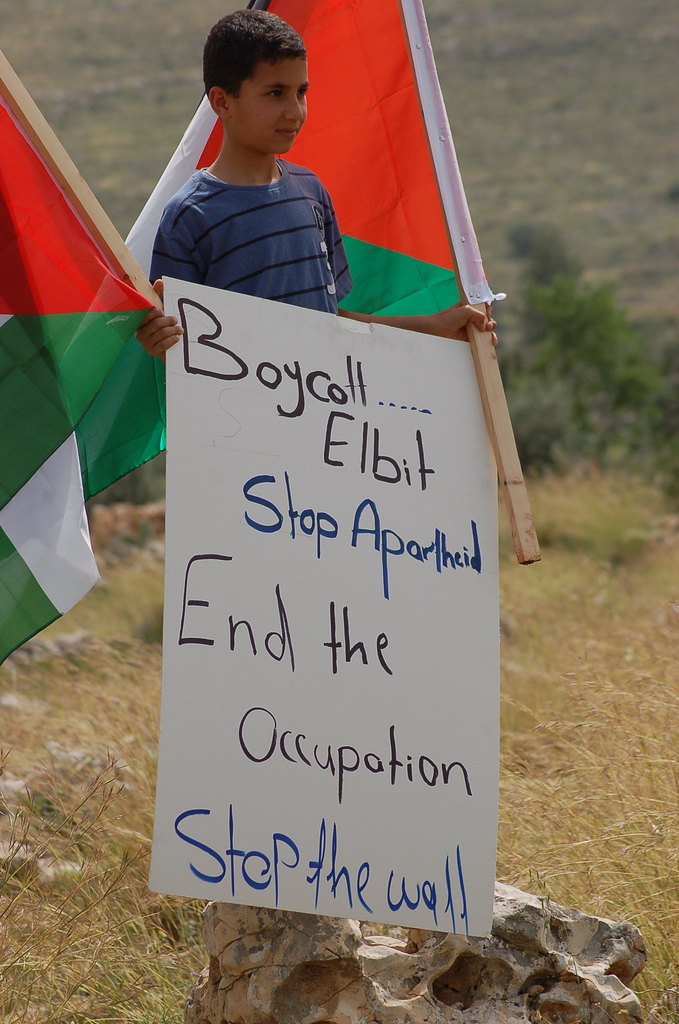During the last court hearing for Salah Khawaja, his defense successfully challenged the trumped up charges brought against him. At that stage, the prosecution of the Israeli military court resorted to presenting a ‘secret file’ to ask for continued imprisonment of Salah. The judge adjourned the proceedings and suspended his decision until a further hearing. Uptodate the court has not announced any date for further hearing, while continuing to keep Salah Khawaja in pre-trial detention.
On December 28, the last court hearing for Salah Khawaja was held and the judge was expected to give his verdict. The Israeli military had brought charges against Salah, based on ‘confessions’ extorted from one of his cousins, who was previously taken to prison and interrogated under human rights violating conditions. Salah’s defense argued not only that her client denies the facts but as well that, even if they had occurred, they do not constitute a crime under the jurisdiction of the Israeli military court. What had been claimed to be a contact with an ‘agent of an enemy state’ turned out to be a contact with somebody in Jordan of unknown identity – hardly a criminal act in itself. Seeing the charge sheet collapsing, the prosecution presented all of a sudden a ‘secret file’ in order to support the charge sheet and to be able to ask for administrative detention. If the court admits this request, Salah can be kept indefinitely in prison and without the prosecution having to publicly prove any guilt or wrongdoing.
In front of this situation, the judge adjourned the decision until a later date. In fact, Salah’s case is followed at high level, including the EU and UN Special Rapporteurs and these developments make it almost impossible to keep Salah in prison and to keep a façade of a functioning judicial system. Salah is in pre-trial detention since October 26 and has suffered ill-treatment and interrogation under duress during this period.
Since then – over two weeks ago – the court has not fixed any court hearing. It is possible that the court hopes to be able to close the case in the interest of the Israeli military with less international attention and backlash. The very fact that the prosecution, once the charges did not hold in front of the examination of the defense, immediately resorted to a ‘secret file’ to keep Salah in prison, underlines that the motivation of Salah’s continued arrest is not any concrete charge that would amount to a criminal act but the interest of the Israeli state to keep him in prison for reasons Israel itself struggles to declare as to any extent prosecutable.
The practices used again Salah are nothing new. Just as Palestinian youth are commonly accused of stone throwing, often even without giving a specific place and time of the supposed act, human rights defenders engaged in international relations and advocacy are regularly accused of contacts with ‘agents’ that threaten the ‘national security’ of the state of Israel. Often these allegations don’t stand up to scrutiny. They are in many cases based on ‘confessions’ of family members or fellow villagers that get arrested and interrogated, including under duress and ill-treatment until they ‘confess’ any act that can be used to frame a human rights activist targeted by Israel.
Such proceedings have a triple effect. Firstly, they allow Israel to frame and keep human rights defenders in prison. Secondly, they are part of Israeli propaganda efforts to depict its policies of occupation, apartheid and colonisation as a ‘self-defense’ against a Palestinian ‘threat’, ‘terrorism’ and violence. Finally, they aim to create suspicion and mistrust within Palestinian communities as members of the same community are forced to sign confessions.
Seldom cases of persecution and framing of Palestinian human rights defenders have been as clear cut as this. We therefore have to ensure that attention continues on the case and Israeli policies continue to be denounced.


